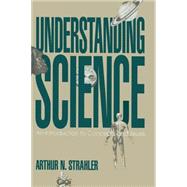
| What Is Science? | p. 7 |
| Laws, Explanations, Theories, Hypotheses | p. 29 |
| Prediction, Testing, Corroboration, Falsification | p. 55 |
| The Complex/Historical Sciences | p. 75 |
| The New Philosophy of Science | p. 101 |
| Determinism, Randomness, Chaos, and Quantum Mechanics | p. 131 |
| Pseudoscience: I. Case Studies | p. 167 |
| Pseudoscience: II. The Phenomenon Examined | p. 199 |
| The Major Classes of Knowledge | p. 223 |
| The Nature and Place of Logic and Mathematics | p. 241 |
| The Supernatural Realm: Religion and the God Concept | p. 271 |
| The Places of Ethics, Ideologies, and Aesthetics | p. 295 |
| How Science Impacts Ethics and Religion | p. 307 |
| Creationism - Is It Religion or Pseudoscience? | p. 345 |
| Epilogue The Skeptical Scientist | p. 377 |
| References Cited | p. 383 |
| Name Index | p. 393 |
| Subject Index | p. 397 |
| Table of Contents provided by Blackwell. All Rights Reserved. |
The New copy of this book will include any supplemental materials advertised. Please check the title of the book to determine if it should include any access cards, study guides, lab manuals, CDs, etc.
The Used, Rental and eBook copies of this book are not guaranteed to include any supplemental materials. Typically, only the book itself is included. This is true even if the title states it includes any access cards, study guides, lab manuals, CDs, etc.